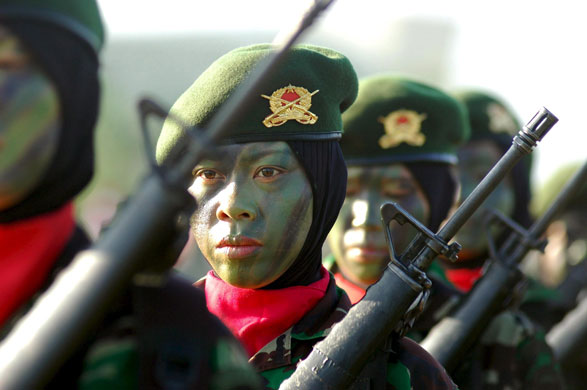twisted, about Pakistan, i will dig an economist article a coupe of years back which is my source. Nevertheless, Pakistan is dependent on IMF and World Bank to sustain. You can google it. Without IMF's support Pakistan cannot afford to pay government employees let alone maintaining such large military. The reason I said Pakistan cannot afford this military is based on its financial situation. It has been getting more loans every year to stay solvent.
You cannot compare to the two economies, Pakistan is dead without IMF. I wonder how it was allowed to spend almost every penny it gets on military.
About its GDP, Tiny Israel has much more GDP than Pakistan

copy/past from US State Dep.
In 2008, the ratio of total debt and liabilities to GDP, a broad measure of the country's capacity to sustain debt, saw an end to a seven-year declining trend, rising in FY 2008 to 60%. The stock of Pakistan's total debt and liabilities increased by 27% year on year in 2008, to PKR 6,417.4 billion (U.S. $80.7 billion at 79.5 rupees per dollar), with a commensurate deterioration in debt sustainability indicators. The fiscal deficit widened from 5.6% of GDP in 1994-95, to 7.7% in 1997-98, and to 5.4% in 2008-2009. Support for loss-making, state-owned enterprises; fuel subsidies; and a weak domestic tax base have been critical elements in the recurring fiscal deficits.
In October 2008, Pakistan entered into a 23-month Stand-By Arrangement with the IMF in order to keep the country solvent and to support its foreign exchange reserves, which had fallen to precariously low levels. The $11.3 billion IMF loan supports two key objectives of restoring macroeconomic stability and confidence in the economy through a significant tightening of macroeconomic policies and ensuring social stability and adequate support for the poor. Other reforms include improvements in banking and tax legislation, phasing out electricity subsidies, and reducing foreign exchange market intervention by the State Bank of Pakistan. A contingency plan for handling problem banks has been prepared and is being strengthened; an action plan to reform tax policy and administration has been adopted and will be implemented with technical assistance from the IMF and the World Bank.
Pakistan remains dependent on IMF and other international assistance for budgetary support and to keep the country more or less solvent. So far, Pakistan has met some of the IMF benchmarks, most recently implementing a 13.6% increase in electricity prices in January 2010. In 2009, Pakistan also received $2.11 billion in aid from the “Friends of Pakistan” group of allies, who pledged $5.7 billion in total.
*******************************************
My point regarding Turkey is that it was much more powerful in the 19th century - that still remains.























































